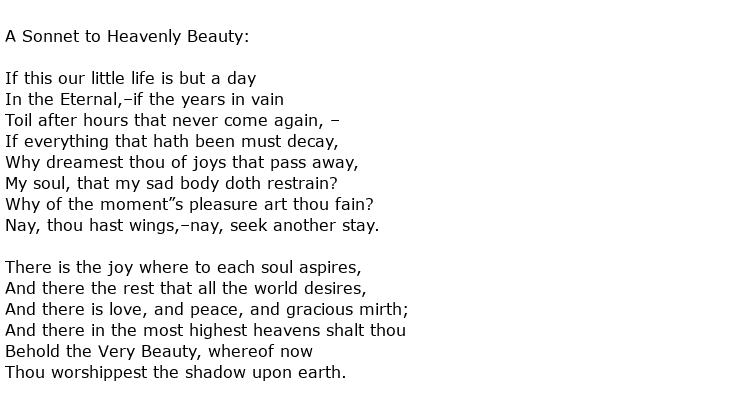 Joachim du Bellay was a 16th century French poet and literary critic. He became well known as one of the principal French Renaissance poets who wrote collectively as La Pléiade. Other prominent members included Jean-Antoine de Baïf and Pierre de Ronsard.
Joachim du Bellay was a 16th century French poet and literary critic. He became well known as one of the principal French Renaissance poets who wrote collectively as La Pléiade. Other prominent members included Jean-Antoine de Baïf and Pierre de Ronsard.
He was born into an aristocratic family at the castle of La Turmelière, close to Angers in the north western region of the country. There is some doubt about the year of his birth with some records showing 1522 while others suggest that it may have been 1525. His childhood was severely disrupted when he lost both parents and, under the lax supervision of his older brother René, was allowed free rein in and around the castle, ignoring any educational needs completely. It was not until the age of 23 that he finally knuckled down to a course of study where he read law at the University of Poitiers.
Not surprisingly he came into contact with a number of learned individuals there, including Latin poets such as Jean Salmon Macrin. Many believe that the birth of French Renaissance poetry came about following a chance meeting at an inn between Ronsard and du Bellay and the two became firm friends. They both went to Paris and fell in with students of the humanities at the Collège de Coqueret. Work was already underway to establish La Pléiade and a crucial part of their manifesto was set out in 1549. This was called the Défense et illustration de la langue française, essentially a mechanism to promote the French language, which was, to some degree, at odds with the languages favoured by the group’s members in their writing. Ronsard, for example, liked to use Greek models while du Bellay was a great lover of Latin.
Many poets and academics were, at that time, of a mind that the French language was an inadequate tool for the construction of higher forms of poetry. Du Bellay contended that, with proper cultivation and universal application, the French language could be improved to a sufficient standard to do justice to poetic works. This would, at times, involve the incorporation of Greek, Latin and Italian into the mother tongue and members of the group asserted that no one should be afraid of this process when considering future prose or poetry.
Around the year 1550 du Bellay was publishing work such as Recueil de poésies, his tribute in verse to the Princess Marguerite. He was also busy with a number of translations of classics such as Virgil’s fourth book of the Aeneid. He had a chance to go and live in Rome as secretary to the Cardinal du Bellay and he put his four year stay there to good use, composing work such as a collection of sonnets called Antiquités de Rome. Here is an example of his work from this time, a piece called

His time in Rome was not especially enjoyable at times, due to the onerous duties that were expected of him but he did, nevertheless, find the time to associate with Italian scholars and other exiles like himself who had a similar poetic character. There was also time for a little romance and the lady in question became the subject of a number of his poems, where he named her Coulumbelle or Columba. He was back in Paris by August 1557 and publishing collections such as Divers Jeux Rustiques and Regrets, which consisted of 191 sonnets.
Perhaps the strain of his official work and his prolific writing was becoming too much for him and his health was deteriorating rapidly, this leading to an early death.
Joachim du Bellay died on the 1st January 1560. He was either 35 or 38 years old. Because of his position in the church he was afforded a burial in Notre Dame cathedral.

